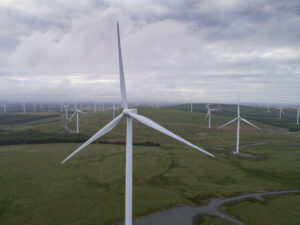What kind of places do we want to have? What kind of communities do we want to have? What kind of world do we want to have? Environmentalism can best accomplish its goals for humans to impact less by leading the conversation on how we can impact more.
Crisis drives us to action but often does not lead us to address the underlying challenges and opportunities it reveals. Environmentalism has effectively articulated the crises, galvanized action and deftly prevented many negative impacts of the crisis. The movement now has an opportunity to move into a new era of leading a discussion on creating the world we want and empowering people to do so on every scale.
The roots of Project for Public Spaces are in the founding of the environmental movement and the calls to action of climate change, resource overconsumption and ecological breakdown. We continue to consider leading environmentalists as close partners and remain as concerned as ever about what we are up against, but we have found that the underlying dysfunction of humankind’s relationship with the environment, as well as the potential to fundamentally address it and re-envision our world, lies at the centre of our communities.
Our work over the past 36 years has brought us into thousands of communities, in more than 40 countries around the world, where communities’ abilities to care about and address these larger crises are undermined by the failures of their immediate human environments.
It is in fact these immediate environments that humans most directly interact with and experience, and it is this place level or human scale that environmentalism has largely ignored. We can perhaps best ramp people onto a broader environmental agenda through engaging them in, and challenging them to take responsibility for and shape these public realms beyond their homes. This process we call Placemaking is about empowering people to take ownership over and contribute to the world beyond their private control.
Only by helping people connect to, care for and shape the world around them and in the centres of their communities will we build the capacity for humans to be able to take responsibility for and redress the larger environmental crises. By reinventing our relationship with that which we are most connected to we reinvent our relationship with the world. Placemaking as Environmentalism evolves the movement from trying to merely enlighten citizens into engaging them as creators their environment.
Environmentalism is largely still focused on changing consumption and limiting pollution which is ultimately not offering a compelling vision for fundamental change beyond peer pressure, trendiness and regulation. Rather than only passively consuming, or resolving to solutions, we can co-create solutions through driving demand for change and collaboratively envisioning and building the world we want.
Technology will keep advancing and offering good solutions but relying on it is allowing us to avoid the broader opportunity to drive demand for a world that we want, that technology can help create and serve.
The narrow goal of using less carbon perpetuates a very passive role as citizens rather than that we use carbon responsibly and creatively. As the building block of life, its potential for creativity is perhaps its biggest reason for thrift. It is when we use carbon for goals that do not create life that we are putting it to waste.
The centre of our communities, the places of greatest connection, is where we can put carbon to its greatest most efficient use through the shared process of placemaking. Having less impact is noble, but aspiring to have a big impact, to create the world we want, is the transformative agenda, and the offer, of the next phase of the environmental movement.
______
In evaluating a project or action for environmental impacts, not only do we need to be asking the traditional questions:
• Is it sustainable?
• Has it minimized its impact?
• Does it use the most ecological practices?
• Does it celebrate ‘nature’ or ‘greening’?
• Is it the best technology we can create?
We also need to be asking:
• Are we supporting or generating life?
• Are we helping life express its potential?
• Do our actions reflect a love and support for our surroundings (environmental, built, cultural, historical, social, economic, place)?
• Does it love and support the earth and the broader ecosystem of which we are a part?
• Do our actions reflect a love and support for people and their comfort?
















Leave a Reply